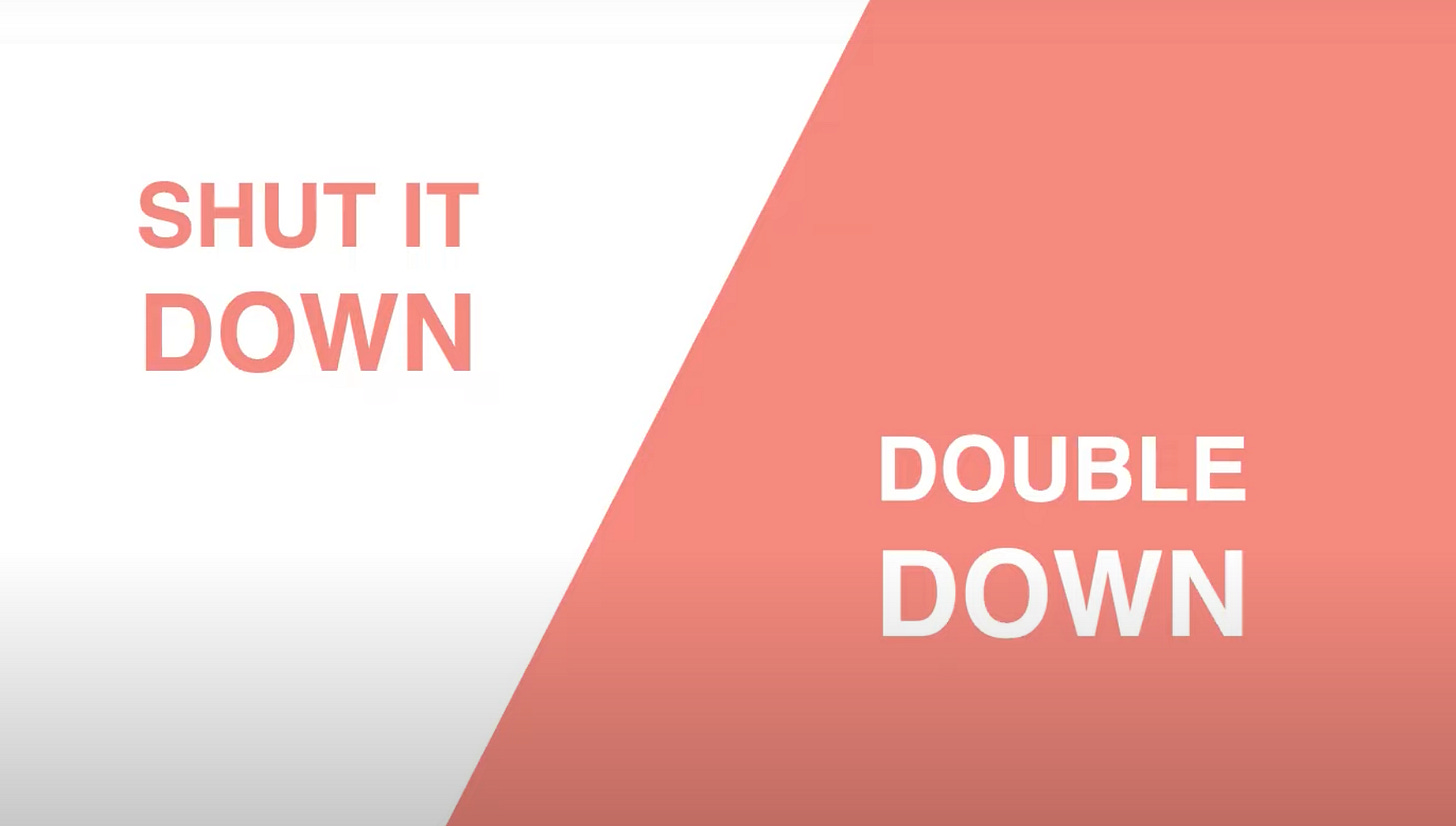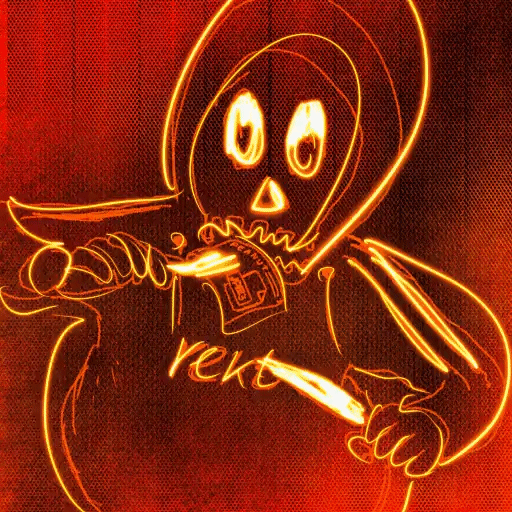[Dive #71] Li Jin's Creator Economy Course Review 📓
I watched 10 hours of content so you don't have to 🧠
A couple weeks ago I shared that Li Jin made her Creator Economy course free!


So why did this pique my interest?
Duh 😉
But also:
Li Jin has a strong track record as a VC (ex-a16z and Atelier, now at Variant Fund). Some investments she’s been a part of include Imgur, Substack, and Luma.
Li is also a creator herself. As a kid, she blogged on Xanga and was active on the Neopets forum. She also started her first side hustle handcrafting envelopes and selling them online. Now she has her own newsletter, another newsletter/podcastvia Means of Creation, and is part of a collective of great writers called Every.
I myself am becoming a creator through writing this newsletter so I’m all 👀 and 🦻
Though the live course happened in March 2021, the course is still quite relevant today.
Why is this relevant for you, me, or anyone?
It provides a great overview of the Creator Economy! Whether you’re a creator, a founder building for creators, or working for a creator or a company with creators as customers, it’s great to understand and hear from all the facets of this space.
There are several guests that provide unique perspectives that many, including myself don’t have. I’m almost 4 months old as a creator, so I’m still an infant 👶
If you’re in Web3, you know that the creator economy is the future. Web3 is unlocking a whole new dimension of what it means to be a creator, but also what it means to earn as a creator. So similar to Web3/NFTs — You don’t have to agree with or understand all of it. But best believe, lean in and don’t ignore it!
GET TO THE GOOD STUFF TPAN
Yep yep, here we go! My ‘good stuff’ probably differs from your ‘good stuff’, but these were some nuggets I found to be particularly interesting.
Business models determine content (Workshop #2, 4:17)
When Li shared her framework on the slide above, I was thinking ‘how the f*ck did I not notice this?’, especially as someone with a Growth/Marketing background. 🤦♂️
I often harp on and think about channel-product fit, channel-audience fit, product-market fit, etc. etc. but I haven’t thought about business model x content fit.
What Li is saying is this:
Instagram: Focused on content that gets users to feel inspired or guilty
Tiktok: Focused on content that gets users to be entertained
You can see these loops are the same outside of the content itself. Also, Instagram does have entertaining content while Tiktok has aspirational content. However, the core content types are different, incentivizing different behaviors and emotions.
Li also cites Tiktok’s $200 million Creator Fund.
Look who joined the party a year later? A bigger number, but the devil’s in the details (we won’t get into that though, I’m still on the first nugget! 😰).
Point is, when it comes to content and building companies around that. Looking at the business model in terms of what types of creators and content it will attract is an important and underappreciated POV.
Creator-Market Fit (Workshop #3, 14:55)
Through the workshop series, Li brought several guests to speak about various topics. For Workshop #3, she brought Justin Moore, who is a Youtube creator and has also built a business helping other creators to find sponsorship deals.
Justin talks about another (another?!) framework: Creator x Market fit.
Each of these circles is a foundational skill that creators need
Psychological: The fortitude to continuously create or post, even if you don’t have a banger every time.
Financial: We all have to eat. Otherwise, back to working at McDonald’s.
Algorithmic: You have to create and optimize content that the platform (Youtube, IG, Tiktok, etc.) likes based on various signals.
So what happens if you are missing a pillar?
Psychological: You’ll get burnt out because creating is tiresome. I mean shoot, I don’t know how this is my 71st piece and it’s been less than 4 months. I guess I’m doing ok on this front 😂
Financial: You have viral content and the will to power through but you’re eating ice cube sandwiches 3 times a day? You have to build a team or have the tools to make you business savvy to earn what you deserve.
Algorithmic: Your career withers away because the platform is not finding your content and boosting it.
Very interesting to me because I’m 4 month old Baby Creator TPan. 🍼
I would say I’m in an ok spot for now, but over the next several weeks/months which pillar will start eroding for me? Or has one already eroded?! 🤔
Bonus Workshop #1, Jesse Walden (Founder, Variant Fund)
In Li’s first bonus workshop, she brings on her now colleague, Jesse Walden to speak on the Web3 creator economy.
Boring, obvious stuff right? But…
At this point, I was only about 2 months into my crazy Web3 journey (T-13 months from starting my creator journey), poring over NBA Top Shot moments like a noob. I could’ve gotten a few Cryptopunks instead of hundreds of slam dunk clips! 🤦♂️
Jesse also speaks to how Web3 and NFTs are able to help creators capture more value for the work they create, the tides are shifting in favor of creators, and that’s why creators are arguably the most excited and interested in what Web3 can do.
For those that are newer to Web3/NFTs, I would recommend watching this 1-hour overview from Jesse (only 40 minutes on 1.5x!). It’s pretty cool to hear a VC speak deeply about a topic, and everything he discusses is still relevant over a year later!
Bonus Workshop #2, Nathan Barry (Founder, ConvertKit)
This was by far my favorite workshop. Nathan (I’m going to call him Nate because it rolls of the tongue/keyboard nicely and I want to be his friend lol) shared his journey being a founder, how he has grown ConvertKit, and various anecdotes. Some nuggets I captured:
He encouraged the audience to troll him in the chat (make jokes and create side chatter) while he presented. His company does that whenever he speaks and it’s a fun way to get everyone engaged. He also joked that the secret to hockey stick growth was by sucking for a long time so you can get that hockey stick to look good. As I said, Nate is a homie. 😂
Early on, Nate was faced with two paths
We know which path he took. And that’s relevant for all of us, whether we’re creators, business owners, or pursuing something on the side. And for those that are pursuing whatever that ‘thing’ is:
and
It’s easy to say “Yes!” But deep down: Do you? Have you?
ConvertKit is bootstrapped (no outside funding)
Though there were many disadvantages to this early on, this allowed for some interesting dynamics for Nate and ConvertKit at a later stage:
The company is transparent with their business metrics. You might reveal your compensation structure for employees publicly or share your internal roadmaps like Kevin Rose has with Proof/Moonbirds. But revenue, new business, churned business, the whole 9 yards? This is not a thing if you’re a VC-backed company. This is not a thing if you’re a company in general lol.
At this point, don’t you like Nate too?
100% remote team - Popular now, but wasn’t always
Profit sharing - 60% of the company profits go to the team based on company performance and employee tenure
If ConvertKit was VC backed, they probably would have grown a lot faster, but they would have traded off some of the points above. Would it have been better or worse? Who knows, but the path Nate chose for ConvertKit works for him, his team, and company. Bravo!
Why did I enjoy Nate’s Workshop the most? His story and his experience is most like a creator’s. He bootstrapped everything himself, had to bet on himself and double down on his work, and did things his way.
What does this have to do with Web3?
Oh ya, my newsletter is about Web3 and NFTs…right…
Let’s tie this back together folks.
Web3 allows creators to earn dynamically
Creators that sell their work in NFT formats can get perpetual royalties. If I sell this World of Women Capacitor (not sure what this is, was airdropped to me in the middle of the night), World of Women takes a 10% cut (creator fee) from the sale. And if the new buyer sells it, World of Women also takes 10% from that sale too. So on and so forth.
For newsletter writers, the typical way to monetize is either through sponsored sections of your newsletter or through subscriptions with premium content. That’s great, but what if I want all my content to be free? You can put your writing up as NFTs on a platform like Mirror and supporters can purchase them. Down the road, owning that NFT can provide benefits down the road or even appreciate. Sorta reminds me of collecting art from an artist and investing in their early work. Writing is art too, remember? 😊
Web3 builders and creators have a stronger overlap
When I listened to some segments of the course, my first impression was surprise. When Li went over topics like:
The Creator lifecycle
Creator hierarchy of needs
Monetization models
I wondered if I wanted to continue through the course. I’m not saying this I think I know it all, but I did honestly think it was pretty basic (the frameworks and overviews were still helpful as a refresher).
But then I realized: The reason Li painstakingly went over these frameworks and overview was because many of the founders and builders for the creator economy were not creators themselves 😭.
In Web3, there is a much stronger overlap between builders and creators. For many NFT projects, the art and the artist(s) hold the spotlight. Many entrepreneurs and founders are showing their own artistic side. For example, OSF is an ex-Wall Street trader, but also a Web3 founder and up-and-coming digital glitch artist (might not be your style, but trust me it’s worth more than you think).
The Creator x Market fit problem is solved (sorta)
Remember that venn diagram with all the ways creators can fail?
Web3 helps to address them in a way that create more opportunity and a stronger support system to enable success.
Web3 is not cure-all, but it does help.
There you have it folks! 10 hours of awesome content by Li Jin and friends, compressed into a <10 minute summary.
See you tomorrow :)
























Loved this one. The Venn diagram was new for me, haven’t seen that framework before. Helpful in understanding the main success attributes for a creator.
“many of the founders and builders for the creator economy were not creators themselves” *chefs kiss*, so true.
I also wonder how NFTs could play a role for expert writers/SMEs that run newsletters like yourself. Access paywall? Certain articles require your NFT? How do we attach tiered access to knowledge?! 🤔🤔🤔